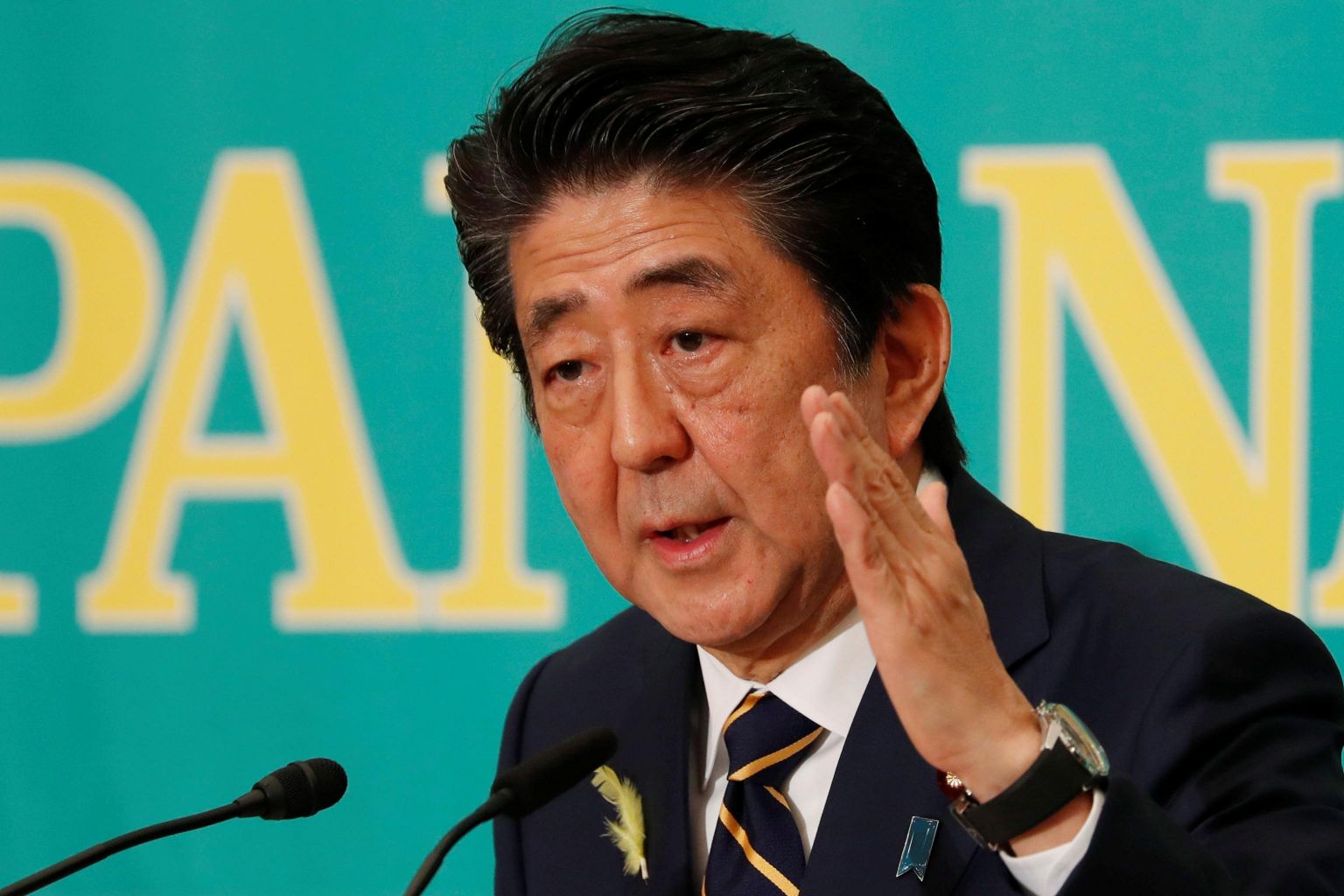What to watch for in a Japanese election that will shape Abe's legacy
Sign up now: Get ST's newsletters delivered to your inbox

A sixth straight win in a national election would reinforce the LDP status as Japan's undisputed ruling party and cement Shinzo Abe's legacy.
PHOTO: REUTERS
Follow topic:
TOKYO (BLOOMBERG) - Campaigning begins on Thursday (July 4) in a Japanese Upper House election that could determine Prime Minister Shinzo Abe's chances of achieving his long-held ambition of changing the country's pacifist Constitution.
While polls show his long-ruling Liberal Democratic Party (LDP) boasting stable support ahead of the July 21 vote for the less-powerful of Japan's two houses, Mr Abe needs a two-thirds majority for proponents of constitutional change in both chambers to send a proposed revision to a national referendum. Low unemployment has helped Mr Abe fend off opposition challenges, despite a series of gaffes and scandals involving his Cabinet since he took office in 2012.
A sixth straight win in a national election would reinforce the LDP's status as Japan's undisputed ruling party and cement Mr Abe's legacy. He's on course to overtake an early 20th century leader as the country's longest-serving prime minister in November.
Here's what to watch:
The Voting
Half of Japan's Upper House faces an election every three years, with members each serving a six-year term. Up for grabs this time are 124 seats, three more than in the last ballot, due to reforms aimed at re-balancing representation as the population continues to drift from rural to urban areas.
The ruling coalition has 70 of the 121 seats that are not being challenged in this month's election, meaning it would need to win 85 of the contested seats to secure a two-thirds majority along with other proponents of constitutional change, according to the Asahi newspaper. Candidates are elected through a mixture of constituency races and proportional representation.
The Contenders
Mr Abe has emphasised the importance of political stability. He also stressed the need for amending the country's top governing document, saying that, "writing the Self-Defence Forces clearly into the Constitution is the basis of defence".
Mr Yukio Edano, head of the main opposition Constitutional Democratic Party of Japan (CDPJ) said he would look to protect people's livelihoods.
The Issues
Sales tax: Mr Abe's government is set to raise the sales tax to 10 per cent from the current 8 per cent in October, a move he has said is needed to fund pledges on education as well as to help cover the ballooning costs of social security in the world's most-aged society. Opposition parties are calling for the plan to be dropped and media surveys show the public is divided over the issue.
Pensions: Social security is cited as the most important electoral issue in media polls, with 83 per cent of respondents to a Yomiuri newspaper survey last month saying they were uneasy about the system, after a report compiled by a government advisory panel said a married couple would need an average of 20 million yen (S$250,000) in savings to manage in retirement.
Economy: Opposition parties say Mr Abe's economic policies have bolstered stock prices and corporate profits while failing to bring prosperity to individuals and households. The main opposition CDPJ says it wants to re-think the tax system to make it more progressive.
Constitution: Mr Abe wants to add wording to the pacifist Article 9 of the United States-drafted Constitution that makes explicit the legality of Japan's Self-Defence Forces. That plan divides voters. A survey by public broadcaster NHK last month found 27 per cent thought the Constitution should be revised, while 30 per cent said there was no need, and the remainder weren't sure or didn't answer.

